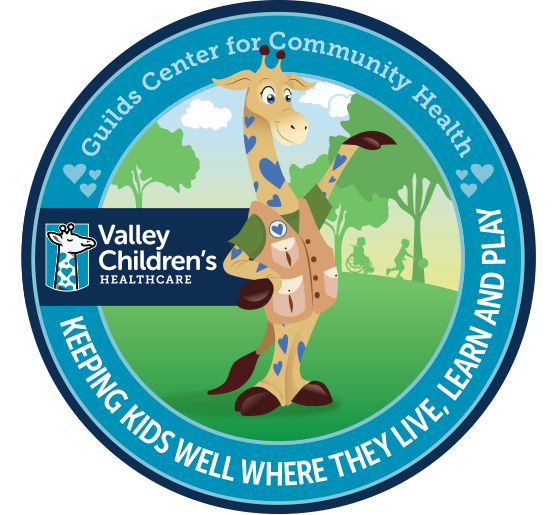Early Literacy, Does it Matter? The Truth About When to Start Reading to Your Baby
July 10, 2023Categories: Parenting, General Information
 |
This article is brought to you by the Guilds Center for Community Health quarterly publication, State of our Children 360. To receive the newsletter, please visit the Center's website. |
Is your baby gnawing on the corners of his board books? Has your granddaughter babbled her first word? Are you running to catch up with those fast and wiggly feet? Or are you sitting up at night, hand over your belly, awaiting your little one's grand entrance into the world?
Whatever the case, now is a good time to start the practice of reading.
We are literally born to learn. According to First 5 California, “A child develops much of her capacity for learning during the earliest years, since this is the time when the brain undergoes its most dramatic growth.” In fact, in the first three years of life a child's brain produces more than a million neural (brain) connections each second;[1] and while genetics provide the blueprint, our first experiences with the world around us profoundly shape how our brain develops.[2]
One of my most cherished memories as a mom is reading Guess How Much I Love You to my firstborn daughter, Yami, when she was only three months old. We shared this moment after a long day of work where it was just her and I lying down next to each other as I read the book. She imitated the sounds I made, which was a precious moment for both of us that I was lucky enough to capture on video. Later, I learned that experiences like this encouraged her language development and definitely strengthened our bond (she is very proud of that little video).
Those early months and years are considered a rapid period of brain development where we begin building the skills to read and write (early language and literacy). Children exposed to books and language patterns at a young age imitate speech and gestures early; even turning pages and "reading" pictures are language skills in the making. As adults, we can set the stage for the joy and love of language and reading with the children around us. Babies who are read to in the womb can recognize voices when they’re born and talking to baby helps create healthy habits, reducing stress for expecting parents. Early literacy doesn't look like a three-year-old reading words on a page; it's the positive and foundational experiences children have watching you enjoy a book, sharing a cozy bedtime story, laughing to a silly song, and yes, even chewing on the spine of Guess How Much I Love You.
In fact, studies show that children whose parents frequently read to them know and understand many more words by age two than children who have not been read to regularly.[3] However, the reality is that reading is a challenging experience for many of us. We understand that sometimes finding a quiet moment to immerse yourself or your children in a good book can be difficult. With so many responsibilities to juggle, dishes in the sink, kids awake, work, and a mile-high pile of laundry, it's easy to feel like there is no spare moment or the capacity to do more.
The good news is encouraging your child's love of reading can fit into a busy schedule. Here are just a few ways to incorporate language and literacy into your day-to-day:
1. Narrate your own story. Talk about what you see and do. “Your toothbrush has a purple handle with green bristles.” “I am using a potato peeler to peel off the outside of this potato. Did you know where potatoes grow?” Not only will you share new words, you encourage story telling as well.
2. Read the world aloud! Books aren’t the only things with words. Read the label on the cereal box during breakfast, read the food labels at the grocery store, read street signs as you walk by, read the advertisements in the mail. Anything with written words is considered reading.
3. Create a book basket for your child with kid friendly books and coloring items that they can reach and explore with you and on their own. This includes touch & feel or texture books for infants.
4. Set aside a regular time for reading together. It doesn’t have to take long. Don’t worry if your child doesn’t want to finish the book or wants to flip from the middle to beginning to end. It’s about the positive time you’re spending together.
5. Did you know children build early math skills through talking and reading together? Count the animals on the page, point out the pairs of butterflies you see, compare which tree on your walk is larger or shorter.
6. Make reading fun. Don’t be afraid to change your voice, use your hands and bring the story to life in your own way.
7. Sing together! Even if you’d never join a choir or feel shy singing in public, your baby loves your voice starting in the womb!
As parents, we are our child/ren’s first and most important teacher. We have everything we need right now to build a foundation of literacy to set the stage for their life-long learning and development. Whether you pick up a beloved classic like Guess How Much I Love You, or read a silly book out loud while baby is still in the womb, it’s never too early to start reading to and with them. It is a fantastic way to promote early literacy, language skills, and to create a strong bond between you and your baby. Plus, they'll feel loved "right up to the moon - and back."
A special thank you to guest author Fabiola González, Executive Director, First 5 Fresno County, for this blog.

List adapted from First 5 California and Zero to Three – for more tips on supporting your child’s early literacy development visit https://www.first5california.com/en-us/articles/how-to-read-with-your-child-at-every-age-preschooler/ or https://www.zerotothree.org/resource/what-we-know-about-early-literacy-and-language-development/
[1] https://www.zerotothree.org/issue-areas/early-learning/
[2] https://developingchild.harvard.edu/science/key-concepts/brain-architecture/
[3] https://www.first5california.com/en-us/articles/reading-from-the-very-beginning-newborn/